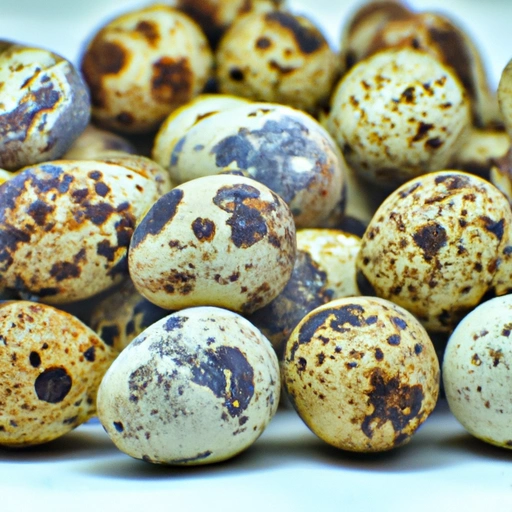Quail Egg
Description

Quail eggs are a small but mighty ingredient found in various cuisines around the world. They are the eggs of the quail bird and are notable for their distinctive speckled shell and size, which is smaller than the common chicken egg. Despite their diminutive size, quail eggs are packed with flavor and nutrients, making them a favorite among food enthusiasts and health-conscious individuals alike.
Common uses
Quail eggs are commonly used as a garnish, in appetizers, salads, and as a key ingredient in many dishes. They can be consumed raw, boiled, pickled, or fried, and are often found in sushi, mini Scotch eggs, and as a topping on canapés or deviled eggs. Their small size makes them perfect for bite-sized treats and adds an elegant touch to any dish.
Nutritional value
Calories
A single quail egg (9 grams or approximately 0.32 ounces) provides about 14 calories.
Protein
Quail eggs contain about 1.2 grams of protein per egg, making them a good source of high-quality protein.
Fat
Each quail egg has roughly 1 gram of fat, which includes a mix of saturated and unsaturated fats.
Carbohydrates
Quail eggs are low in carbohydrates, with less than 0.1 grams per egg.
Vitamins
They are rich in vitamins, including Vitamin A, B complex vitamins such as B12, riboflavin, and folic acid.
Minerals
Quail eggs boast a good mineral content, providing iron, phosphorus, and zinc, among others.
Health benefits
Quail eggs are known for their health benefits, such as supporting vision health due to their Vitamin A content, aiding in the maintenance of healthy skin, and contributing to a strong immune system. The B vitamins in quail eggs can help in energy metabolism and brain function. Additionally, they contain choline, which is essential for liver and brain health.
Potential risks
As with any egg, there is a risk of foodborne illness such as salmonella if not properly cooked. People with egg allergies should also avoid quail eggs, as they contain similar proteins to chicken eggs, which can trigger an allergic reaction.
Common recipes
Quail eggs can be found in recipes such as quail egg ramen, quail egg canapés, mini Scotch eggs, and in salads. They are also popular in sushi rolls and as a topping for tartare dishes.
Cooking methods
Popular cooking methods for quail eggs include boiling, pickling, frying, and poaching. Due to their size, they cook quickly and can be used whole or as an ingredient in recipes.
Pairing with other ingredients
Quail eggs pair well with truffles, caviar, smoked salmon, and a variety of meats and vegetables. Their subtle, slightly gamey flavor complements a wide range of ingredients.
Summary
Quail eggs are a versatile and nutritious food ingredient appreciated worldwide. Their historical use as a delicacy in Europe and Asia continues today with their inclusion in modern recipes. High in protein, vitamins, and minerals, quail eggs offer health benefits such as improved vision and brain health. Whether used as a garnish or a key component in a dish, quail eggs can elevate the culinary experience with their unique flavor and elegant presentation.